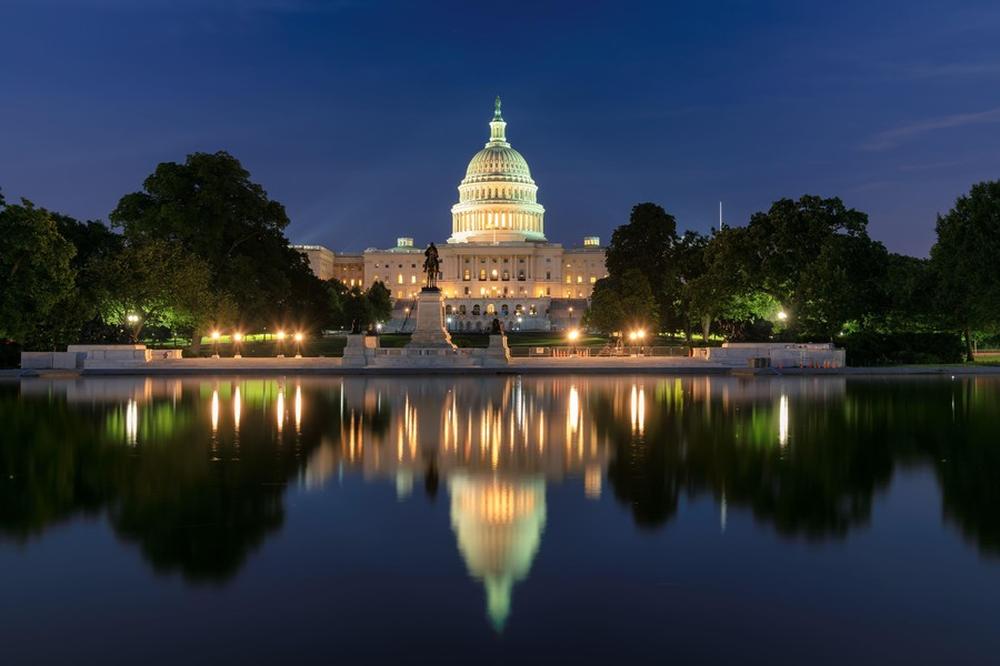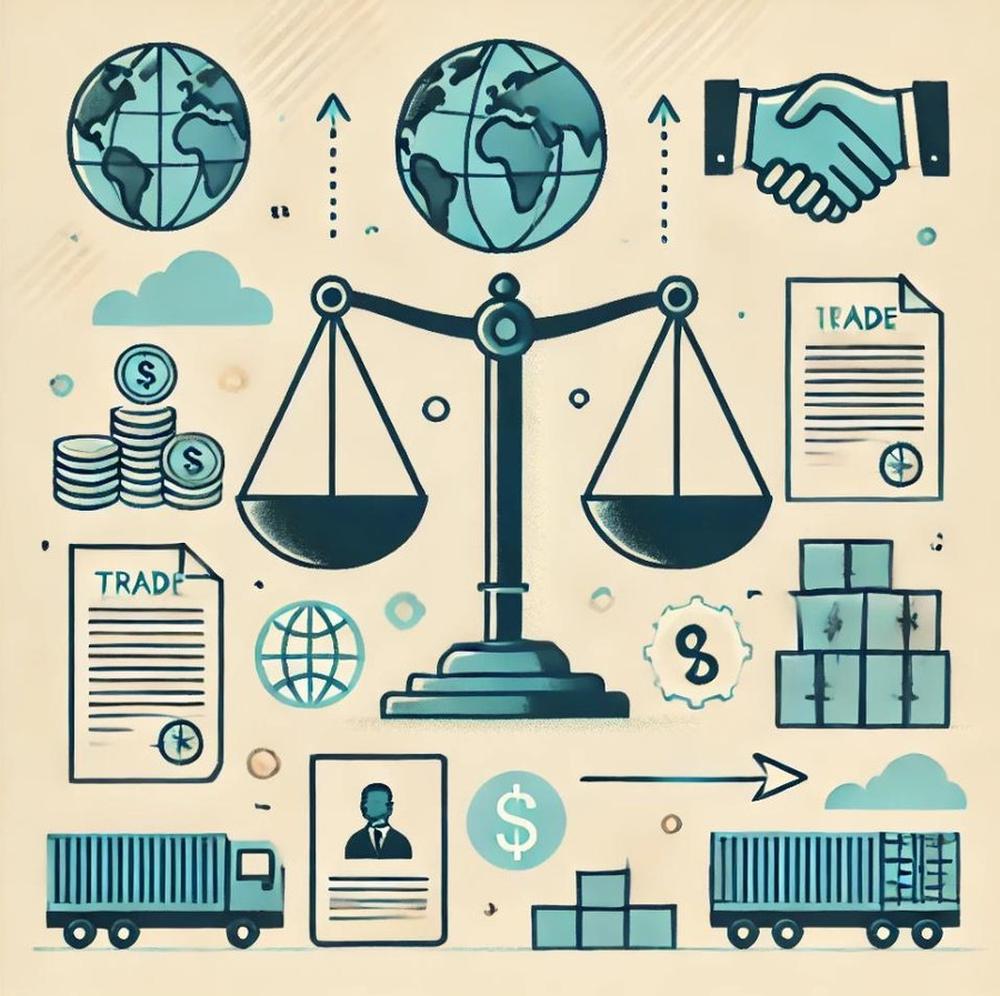- #Economy & Trade
- #US Foreign Policy

► The second Trump administration will continue pursuing the 'America first' agenda, emphasizing aggressive trade policies with universal baseline tariffs, substantial tax cuts, and federal deregulation to promote American manufacturing and innovation.
► The administration’s focus on deregulating the big tech sector, particularly in areas like artificial intelligence (AI) and space exploration, aligns with its vision of fostering innovation while reducing federal oversight.
► These policies are expected to significantly impact global markets, heightening trade tensions with allies and competitors alike, while potentially driving shifts in international financial systems and intensifying global competition in technology and industry.
There has been a keen interest in the trade and industrial policies of a new American government since Donald Trump won the US presidential election for his second term. What would be the key ideas of policies on trade, industry, and innovation in the second Trump administration? How would such policies impact the US and global markets? This article addresses these questions by examining the ideas Donald Trump presented in his election campaign, exploring some figures who could join the new cabinet, and suggesting the possible consequences of such policies in the global market.
Many public policy experts speculate that the second Trump administration which will start the term in January 2025 will continue pushing the ‘America first’ agenda in financial, military, and foreign-policy issues. During his first term, Trump signed into law in 2017 for the Tax Cuts and Jobs Act to lessen the maximum corporate income tax rate to 21 percent and redesign international tax rules. The Act was expected to stimulate the economy by generating wealth. Trump claimed that the benefits would trickle down and result in substantial gains for American workers.
Likewise, the second Trump administration will continue pursuing the tax reform to serve American interests. As clearly emphasized in ‘Agenda 47’, which was proposed by Donald Trump during the election campaign, more tax cuts and federal deregulation are expected to spur American manufacturing. Further, Trump proposed to introduce universal baseline tariffs on most foreign products with the aim of rewarding American production while imposing taxes on foreign enterprises.[1] Trump suggested ideas of imposing more tariffs on all goods imported into the US market, especially targeting Chinese products in the sectors of electronics, steel, and pharmaceuticals.
In general, a more aggressive trade policy is expected compared to his first term. Protectionism based on Trump’s idea of ‘America first’ expected higher tariffs and severe competition with many partner countries. It is expected that the second Trump administration will pursue the interests of American workers and businesses across industries. Trump has emphasized the problems of unfair trade that the US had in the past with other countries many times during his election rallies, arguing that previous practices have promoted the interests of foreign workers instead of Americans.
In his first public speech at the America First Policy Institute (AFPI) Gala after winning the presidential election in November 2024, Trump introduced the Institute and key members of the Cabinet who have been extremely supportive of Trump’s candidacy at the recent election. Trump named leading American entrepreneurs Elon Musk and Vivek Ramaswamy, leaders of the newly introduced Department of Government Efficiency (known as DOGE). Trump also addressed Robert F. Kennedy Jr. as the Secretary of Health and Human Services. However, Trump did not indicate any figures to lead trade and economy in the Gala meeting. Scott Bessent was later nominated to lead the US Treasury Department as the Secretary.
Bessent, a Wall Street financier, is expected to play an important role in dealing with tax policy, public debt, and international finance and sanctions. He supported Trump at the early stage of his bid for the presidential election and often defended Trump’s economic plans in the media. He is also known to have played a key role as an economic adviser to Trump over the past year. Considering the professional background of Bessent, Trump’s ‘America first’ agenda will be actively pursued through trade and industry policies in the second Trump administration.
Such economic orientation expects far-reaching repercussions, not only from advanced industries but from emerging economies. The EU members, who were under severe pressure from Washington to lessen economic ties with Beijing during the first Trump administration, now anticipate further suffering from Trump’s ‘America first’ policies economically in Trump’s second term. The EU countries are now preparing ways to hit back fast and hard in tariff disputes with Washington if necessary.
In the meantime, the BRICS members have already started using other currencies for their trade and investment activities. Russia’s President Vladimir Putin recently mentioned that Washington has weaponized the US dollar and that 95% of trade between Russia and China was being transacted through rubles and yuan. The so-called ‘Gloth South’ nations have asserted de-dollarization arguing a necessity to use alternative currencies rather than the US dollar for international financial transactions. Even India and China, whose bilateral political relationship has not been amicable most of the time, are currently on the same page by signaling cooperation in this area.
Trump has also presented his strong will to deregulate in the big tech area, again based on his ‘American first’ strategy, during the election campaign. His ‘American first’ strategy includes innovation in crypto, artificial intelligence (AI), and space development. Such innovation sector reform includes the establishment of Central Bank Digital Currency that ensures Americans’ right to self-custody of their digital assets and the introduction of ‘manufacturing industry in near-Earth orbit’.[2] The second Trump administration will put heavy emphasis on AI technology to promote innovation in the space sector and deregulate related policies.
According to the White House, the current Biden administration has secured ‘voluntary commitments’ from the seven leading AI companies, namely, Amazon, Anthropic, Google, Inflection, Meta, Microsoft, and OpenAI, to help build ‘safe, secure, and transparent’ AI technology. The Biden administration aimed to ensure a safe and trustworthy environment through such commitments for the AI industry that American enterprises had led in the global market.
In contrast, the new Trump administration will pursue a more hands-off approach to AI regulation by revoking the AI Executive Order, which was introduced in October 2023 by the Biden administration. It is because the Executive Order has been understood as a heavily regulatory approach for practitioners in the sector. For example, Elon Musk has been a vocal critic of such federal regulations against his SpaceX rocket business. At the same time, Washington will increase collaboration with American AI companies against China’s increasing military and AI intelligence activities in the security sector. Further, innovation and technology are also expected to push the Moon and Mars exploration for the expansion of the commercial space sector.
Thus, Washington in the second Trump administration will pursue the trade rebalance policy to make up over 1 trillion dollars of yearly deficit and strict tariffs on foreign producers while providing substantial tax cuts for American workers and businesses based on the ‘American first’ orientation. It will also push the innovation and big technology sector for development through deregulation.
Such policies will influence many partner countries in the global market substantially regardless of whether they are Washington’s allies. The global competition in the sectors will become much more severe with a ramped-up protectionist approach from Washington, and in turn, it will contribute to restructuring the global market mechanism. Many countries are now expecting disruptive upheavals ahead with the advent of the second Trump administration. On the other hand, the burgeoning push for innovation and space sector development may provide some possible areas for collaboration for a few partner countries.
[1] Trump’s speech on trade plan to protect American workers is available at https://www.donaldjtrump.com/agenda47/agenda47-president-trumps-new-trade-plan-to-protect-american-workers (accessed November 23, 2024).
[2] See Trump’s proposal to ‘Make America Great Again’ at https://rncplatform.donaldjtrump.com/?_gl=1*f1f4eg*_gcl_au*MTYwMDE5MzU0MS4xNzMyMzQ3ODIx&_ga=2.211322396.888694242.1732347821-477232542.1732347821 (accessed November 23, 2024).
Sojin Shin (PhD) is an Associate Professor of Political Economy at Tokyo International University (TIU). She teaches political economy of development and international relations at TIU. Her current research interests include politics of foreign aid, democratic backsliding, and foreign policy with a focus on South Asia (eight SAARC member countries). She can be contacted through soshin@tiu.ac.jp

